Welcome to your two-week round up on the biggest HE news.
Fees and funding
We’re still expecting imminent announcements on funding structures, linked to the lifelong loan entitlement, but possibly going further with at least hints about the future (or non-future) for the Augar recommendations and other changes to the funding structure. BU readers can find our comprehensive review of the current arrangements for funding and fees here.
A student perspective is given in a report by HEPI and the Centre for Global Higher Education. The main findings of the report include:
- Graduates think income-contingent student loans offer access to higher education and regard the repayment system as manageable, with the income repayment threshold protecting against low earnings. Monthly repayments are seen as affordable and automatic repayments are valued.
- However, graduates consider tuition fees and interest rates to be too high, see the amount of debt owed as a burden and feel the repayment period is never-ending.
- Graduates describe emotional and psychological disturbance from their debt, with graduates in the post-2012 reforms cohort considerably more negative about their student loan debt.
Access & Participation Changes
We’ve been waiting for a while for detail some potentially significant changes that will support the implementation into HE of the government’s vision for levelling up and building back better. The new Director for Fair Access and Participation at the OfS has been announced as John Blake and the Government have outlined their changed expectations for what were previously the Access and Participation Plans. The Government’s press release sets the tone.
Before we look at the substance, there is an interesting process point – we were expecting monitoring guidance for the 2021-21 APPs which has had to be delayed. The existing 5 year plans are likely to be ended early and reformulated – which doesn’t sound much like reducing bureaucracy (which is a stated aim). You could read references to this in the many publications this week as sounding a bit defensive. And also a bit blame-y…the implication is that we make it bureaucratic ourselves by the way that we do it: All access and participation work will need to be focused on actions that support learners, with needless complexity and bureaucracy cut out.
There’s a focus on quality – with the point being made again that it is not ok to encourage disadvantaged students to go to university – they have to have the same outcomes as less disadvantaged students when they leave. Getting on not just getting in.
Universities are expected to take a local and regional focus working with all young people (not just disadvantaged) as part of the levelling up agenda. That’s reminiscent of the Theresa May government’s suggestion that all universities should ‘sponsor’ local schools academy trusts. Stretching targets are expected to be set to reduce dropout rates and increase progression into highly skilled (and well paid) employment. Universities will need to demonstrate how they improve educational outcomes for all disadvantaged students in the area (or region) not just those progressing to university. This includes supporting outcomes for those who intend to take up apprenticeships, employment or other options. Universities will be expected to set targets to increase the proportion of students studying degree apprenticeships, higher technical qualification or part time courses.
Of course there are some inherent conflicts within this. Is it ethical to spend tuition fees funded by student loans on the upskilling of the local community (which for many won’t be the community they grew up in)? It isn’t really possible to demonstrate a direct causal impact a university can have on a school pupil’s success? Even with the best programmes can universities demonstrate what is being asked of them? Some student groups are more at risk of drop out than others and some don’t want to make the post-graduation geographical choices that would lead to a higher paid job. Will the Government’s monitoring and targets perversely encourage universities to avoid recruiting these students? It is unlikely that universities would do this, but will there be a punishment for not doing?
We can expect changes to apprenticeship funding models and success targets in the future too. This all sits within the context of the Government’s agenda for fewer young people to attend university (more to consider apprenticeships and non-academic route options) and the public purse concerns surrounding funding the funding and maintenance costs as we emerge from the demographic dip in 18 year olds.
The Government also announced £8 million for 13 projects to remove barriers to post-graduate research for Black, Asian and minority ethnic students, with projects looking at admissions and targeted recruitment. The 13 projects will work collectively to support the entire PGR lifecycle using innovative methods and approaches. This includes reviewing admissions processes to tackling offer rate gaps, and plans to extend routes into doctoral study via professional doctorates and partnering with the NHS. Other projects will focus specifically on intersectional inequalities related to Black female students, and prioritise the mental health of their PGR students of colour… This is only one of many first steps, as systemic inequalities will not disappear overnight. We are acutely aware of how much further the sector needs to travel to be in a position to allow people of all backgrounds to flourish and establish the most outstanding research and innovation sector with a formidable research culture to match.
Wonkhe have a guest blogger who discusses why John Blake was chosen to lead the new access and participation agenda. It is worth a slow read, there is much unsaid between the lines and colleagues will want to be aware that the author, Jonathan Simons, is a partner at right leaning Public First. Do read the comments and responses to the blog. Also worth a read is the open letter blog to John Blake by two student unions. Once you get past the initial credibility ticking and trumpet blowing it makes good points about what helps students stick and achieve at university – calling on the OfS to ask universities to emphasise these aspects in their new plans.
The OfS issued a lot of material alongside the announcement. Amongst the new guidance is this letter from Nadhim Zahawi about the “future of access and participation”. Some extracts that show the ton:
- It also cannot be right that some notional gains in access have resulted from recruiting students from underrepresented groups onto courses where more than 50% of students do not get positive outcomes from their degree.
- At 25 higher education providers, fewer than half the students who begin a degree will go on to highly skilled employment or further study within 15 months of graduation, and even within providers above this threshold, there will frequently be one or more subjects which are below it. Students from disadvantaged backgrounds are being let down by these courses. [We’ve heard that before, it refers to this experimental metric released by the OfS called “proceed” which combines completion rates and graduate employment rates. 10 of them are private or specialist providers].
- We would like to see the OfS rewrite the national targets to better align with this new focus, and renegotiate A&P plans with providers to meet these new priorities, including due consideration of regional inequalities, prior attainment in schools and a focus on the findings of the white working-class boys report, which identified that they are one of the groups least likely to attend university. We encourage the OfS, in the renegotiated plans, to require providers to promote equality of opportunity before entry to higher education, and support schools to drive up academic standards.
- This refocusing of the system is not about creating a new, burdensome industry. These changes should streamline the planning, monitoring and evaluation process. Plans should be short, concise, and both accessible and easy to understand. They should focus on results and best practice. Most importantly, plans should be comprehensible to students and parents, and clearly signposted on university websites, so that they can hold institutions to account on their commitments. We would also expect providers to see material efficiency benefits from this less bureaucratic approach.
Michelle Donelan also spoke at a Times Higher Education event. The tone, again, is interesting:
- … the normal, status quo, comfort zone approach to education is in my view something that COVID has helped to break us out of, and as a result, we now have a once-in-a-generation opportunity to enact historic reforms that are long overdue….
- …the guiding principle for me is ‘when we learn is as important as what we learn’…For too long HE has been predominantly undertaken between the ages of 18- 22 and our system has not supported or developed a culture of lifelong learning….
- … I want to talk about this revolutionary change into further and higher education, namely the Lifelong Loan Entitlement or LLE which the Prime Minister announced as part of the “rocket fuel that we need to level up this country.” I want the LLE to be a fundamental and seismic shift in the way that we fund and enable students to access higher and higher technical education in this country.
- …In less than four years young people will not be channelled, regardless of fit, into a straitjacket of a traditional three-year degree, but instead will have a genuine choice with the flexibility to choose from a range of options that work for them. We need you to create that choice – and whilst we can create the system to allow it we need you to develop the modules working hand in hand with industry….
- … it is unacceptable that so many still find themselves on courses where fewer than 50% of those who start have good outcomes after leaving, or are encouraged onto courses that providers know have poor completion rates…Data from the Office for Students shows clearly that disadvantaged entrants are less likely to continue after year 1, less likely to achieve a first or upper second-degree classification; and less likely to progress into highly skilled employment or study…
- ..So, just as the Russell Group have become used to having to set ambitious targets for recruiting state school pupils in order for their plans to be accepted, from now on universities with poor outcomes will have to set ambitious targets for reducing drop-out rates and improving progression to graduate employment….
Chris Millward (outgoing Director for Fair Access and Participation at OfS) blogged for HEPI: Fair equality of opportunity means a fair chance to succeed. It talks of hearing the student voice, of how disadvantaged students struggle to bridge the fabled gap between talent and opportunity and has some charts on reducing the disadvantage gap. Some excerpts:
- …universities can recognise that the grades of many disadvantaged students demonstrate that they have travelled further and offer greater potential to succeed in higher education. Universities have independence in relation to their admissions precisely so they can make nuanced individualised judgements of this kind.
- This is not an easy route to equality of opportunity. The students I meet in universities identify the importance of a sustained package of support, including academically stretching work before admission and an academic offer that reflects their potential, as well as financial support to meet the cost of living during their studies.
- Alongside this, universities can give greater priority to routes other than young, full-time, full-degree entry within their access and participation strategies, enabling more people to enter higher education when they are older, and thereby diminishing the influence of attainment gaps in school.
- People who study locally are more likely to be from disadvantaged backgrounds and to seek employment in their home region. This means that the geographical disparities… have a profound effect on the employment prospects of the most disadvantaged students… One answer to this might be to encourage graduates living in these places to move away from their local area to study and work… If, though, the most educated people leave an area to gain good employment, this can only compound the challenge for future generations… Another approach might be to encourage people in areas where there are lower school grades and graduate earnings not to go to university at all, for example by completing their studies at lower levels and going directly into work… But it would be profoundly unfair to prevent people from having the opportunity to benefit from higher education due to the circumstances in which they have grown up. It would also be unlikely to succeed, given increasing levels of demand for universities in this country… I am pleased that discussions about social mobility have shifted from enabling people to leave their local area to improving their prospects if they want to stay. But this must not lead to a new binary divide between mobile academic routes for those who get the right grades in school and local technical routes for others.
Meanwhile The Sutton Trust have published a research brief which notes the importance of less selective universities taking disadvantaged students of varied academic potential: Less selective universities take on the majority of poorer students who attend university. While they often have lower graduate earnings on average, many of their graduates from poorer homes in fact go on to achieve well in the labour market. This is further emphasised when the characteristics of their students, including their school attainment, is taken into account.
The brief looks at the effect universities have on social mobility and ranks the top 20 institutions based on their contribution. Unsurprisingly, due to the unique demographics, London institutions come out top. The brief is well worth a read and there are good charts illustrating the points made. We like this one that highlights how the socio-economic background types feed through the university types to their end bearing on earnings.
The report also highlights known truisms which speak to the changes the Government announced – particularly on high employment outcomes:
- The very best-performing institutions in terms of their labour market success admitted few FSM students. Similarly, the universities with the highest FSM access rates have below average success rates. However, across all universities, the correlation between access and success of -0.24 is relatively weak. Some universities do reasonably well on both metrics.
- Adjusting earnings for cost of living differences across the country improves the mobility rates of Northern universities, and lowers those in London and the South East. It does not change the overall ranking of universities very much, however. London universities still dominate the top of the mobility distribution, and the most selective universities still perform poorly.
The OfS have published the APP monitoring outcomes for 2019-20.
- 60 per cent of targets were reported as having made expected progress
- For access, targets focused on gender saw the least progress made (using both categories of no and limited progress). We do not consider gender in isolation as an underrepresented group and for APPs from 2020-21 onwards, there are fewer targets using this category.
- For the success and progression stages of the lifecycle, particularly for continuation, many targets that were not focused on specific groups, but instead related to whole cohorts of students, did not make expected progress. Furthermore, for progression, there was a very small number of targets set for care experienced students and white disadvantaged students where no progress was made.
Some interesting bits of context:
- Changes to academic regulations were cited in a number of returns as additional measures by which student success had been supported…[these included no detriment policies, alternative methods of assessment, broadening extenuating circumstances criteria and assignment extensions]…The OfS expects rigour to be maintained when a provider makes changes to its academic regulations, whatever the reasons for those changes.
- Creating and fostering a sense of ‘belonging’ was seen as an important way to retain and ensure a high-quality experience for all students, and some providers described how this was especially important with the move to online learning.
- Mental health and wellbeing was a topic frequently highlighted in both provider and student submissions. Providers acknowledged how critical an issue this was to student success, particularly for underrepresented students given the additional and disproportionate pressures that the pandemic may have on them…Many providers noted how they had expanded their student support services and reflected on the benefits of moving mental health and counselling services online.
- Some providers anticipated worsening student success outcomes from 2020-21 onwards due to the pandemic. For example, 10 per cent of providers predicted worsening performance in respect of continuation. Some providers also reported increasing numbers of students requesting to withdraw or suspend their study.
- Whilst some providers acknowledged the difficulties associated with their graduates gaining different types of work experience during the pandemic, there were positive examples of how providers had responded. For example, some providers reported the creation of new in-house internship programmes or expanded existing internship programmes, and that work experience and internships had also moved online.
- Placements were particularly affected by the pandemic, as well as some students being made redundant or furloughed. In response, one university offered a number of micro-placements to estranged students, care experienced students and students from low-income households.
And in relation to the student submissions:
- In many of the submissions, communication was a key concern. For example, students felt that it was at times slow and sometimes did not include a clear rationale for why decisions were made.
- Furthermore, students reported that they considered some aspects of support, such as safety net and no detriment policies, and digital support funds and hardship funds, to be at times inadequate, slow to be implemented and reactive rather than proactive. Some students felt there were inconsistencies within the support offered and how this affected different underrepresented groups.
- There were reports that students working on access and participation delivery were unaware of the plan and the wider strategic activity. Suggestions were made on how providers could better inform and engage students in the delivery and monitoring of the plan, including training or inductions for students working on access and participation activities.
And on poor employment outcomes Wonkhe summarise a HESA (Higher Education Statistics Agency) report produced jointly with the University of Warwick that examines the impact of degree classifications on graduate earnings. The report – Graduate Earnings Premia in the UK: Decline and Fall? – finds that the earnings premium over non-graduates for graduates born in 1990 with a 2:2 or below was just 3%, a sharp drop from the 17% premium for similar graduates born in 1970. The report authors…argue that this drop is consistent with their conception that increased higher education and a rise in the proportion landing upper seconds and first has made a “good” degree the new default. However, there is evidence that this effect may be slowing as participation growth slows down. Wonkhe also have a blog where David Kernohan ponders if employers are changing their opinions: Fresh HESA/Warwick research describes how earnings and outcomes have been affected by degree attainment and classification.
And back to Public First – Wonkhe report that Public First polled the public’s views on the levelling up agenda and finds that a third of people view lower tuition fees for people attending their local university as a way to level up their area. There’s a blog about the research on Conservative Home.
Homelessness Access: Wonkhe tell us – The University of Chichester and the UPP Foundation have developed a toolkit to encourage access to university for those with experience with homelessness. The Adversity to University programme is a 12 week course where students – who live in or have been supported by a local homeless shelter – develop the academic and critical thinking skills needed to thrive in higher education. If the students complete the course successfully, they can apply to study a degree at the University of Chichester. The Times covers the scheme.
OfS
Following last week’s publication of the OfS strategy Wonkhe ran a series on the Office for Students:
Research
Research England: David Sweeney will retire from his Executive Chair role at Research England. Recruitment for his replacement has begun.
Horizon Europe: BEIS Parliamentary Under-secretary George Freeman stated the UK is ready to associate with Horizon Europe but the EU delays persist. He said:
- We see no legal or practical reason why we should not be able to formalise our participation swiftly, and urge the EU to do so.
- Our priority is to support our UK’s R&D sector and we will continue to do this in all future scenarios. We have been allocated funding for full association to Horizon Europe, as stated in the Spending Review. In the event that the UK is unable to associate, the funding put aside for Horizon association will go to UK government R&D programmes.
Funding: Wonkhe – Research England has published a breakdown of their £6 million in funding allocations for participatory research. The funding has been distributed to providers based on their total recurrent quality related research, with a minimum and maximum allocation of £5000 and £150,000 respectively. Further documentation for providers is available.
ARIA: The ARIA Bill is being discussed at Committee Stage in the House of Lords (summary here). There were objections to an amendment which attempted to ensure that consideration of climate and environmental goals were embedded within ARIA’s function – the amendment was withdrawn. Lord Willetts called for bureaucracy to be curtailed in other research institutions (as well as ARIA) and for ARIA to pursue a happy balance between missions versus technologies. The ARIA Board was discussed as was ARIA’s deliberate separation from UKRI and the Civil Service. An amendment which required the devolved nations to be represented on the ARIA Board also failed. Dods have also provided a summary of the second Committee session here. And Wonkhe say: there were no surprises in Grand Committee – the government amendments to do with the way devolved governments will interact with the proposed new research funding body passed, and others were not moved. Concerns still exist around ARIA’s transparency and ways in which it can be scrutinised, and the overall purpose and goals of ARIA – these are likely to return at report stage.
The ARIA Bill will shortly move to the report stage.
Xinjiang/research: The Government has published their response to the Foreign Affairs Committee’s report on the UK’s responsibility to act on atrocities in Xinjiang and beyond. Recommendation 28 is of relevance to the UK higher education sector’s ties with China.
- Recommendation 28: Where a Chinese institution possesses known or suspected links to repression in Xinjiang, or substantial connections to Chinese military research, UK universities should avoid any form of technological or research collaboration with them. They should also conduct urgent reviews of their current research partnerships, terminating them where involved parties are found or suspected to be complicit in the atrocities in Xinjiang.
- The Government is committed to providing support to UK universities and research institutions to help them to make informed decisions and manage risks when undertaking technological or research collaborations with other countries, including China. We will not accept collaborations which compromise our national security or values. However international research collaboration is central to our position as a science superpower, and our research sector therefore needs to be both open as well as secure. A range of measures are already in place to support UK universities and research institutions to manage these risks, including:
- Launching the Trusted Research campaign, which included the publication of new detailed guidance by Universities UK on the risks involved in international collaborations. The new guidance, ‘Managing risks in internationalisation: security-related issues’, advises UK institutions to assess reputational, ethical and security risks when conducting due diligence on prospective partners. The Government is also working with UK Research and Innovation (UKRI), the UK’s largest public funder of research and innovation, to ensure that its employees and grant holders adhere to the latest Government guidance.
- Under the UK’s export control regime, the Government rigorously assesses all export licences against strict criteria. We continuously strengthen protective measures and expect universities to do the same.
- The Department of Business, Energy and Industrial Strategy (BEIS) is currently recruiting a new Research Collaboration Advice Team to help raise awareness and understanding of Government advice on security related matters, including export controls, cyber security and the protection of intellectual property. The new BEIS team will also provide support to researchers to help them to pursue safe international collaborations.
- The Academic Technology Approval Scheme, which the Government expanded in March 2021, also provides robust procedures to protect national security and counter foreign interference.
Wales: Wonkhe report – First Minister Mark Drakeford has announced research and development priorities for the Welsh government. He commits the government to work to secure R&D funding levels “at least equivalent to those received historically via the European Union,” and to address “historic underfunding” from UK investment. Funded research will support priorities around climate change, environmental recovery, and decarbonisation. There will also be a new cross-government innovation strategy with a focus on driving impact.
Admissions
The Ministerial letter from Michelle Donelan which set out the changes to Access and Participation (and repeated much of what we summarise above) also raises some admissions issues. It asks universities to consider what will happen if there are changes to arrangements for students seeking admission to university again this year, e.g. if exams have to be cancelled or to deal with another year of potentially higher grades: We believe that planning now and building resilience into your offer-making strategies to avoid either over or under subscription at individual institutions in all scenarios is a vital part of your own contingency planning. We encourage you to be thoughtful when setting your offer requirements and to consider any additional measures which would allow you to plan as effectively as possible.
And then a focus on “student focussed admissions practices”:
- As you will be aware, the OfS temporary registration condition, Z3, which prohibited the use of conditional unconditional offers and other types of offer making practices ended on 30 September this year. Whilst Z3 is no longer in place, I would like to strongly encourage you to continue to act within its spirit and adhere to the principle of ensuring students’ best interests are safeguarded during these difficult times – which I know has been the case over the last 2 admissions cycles. This includes avoiding the use of ‘conditional unconditional’ offers and other practices which may place undue pressure on students to make choices.
- .. It is therefore disappointing that, during previous admissions cycles, there have been instances of providers introducing oversubscription conditions that permitted them to withdraw places where the number of students meeting offer conditions exceeded the number of places available.
MD therefore welcomes a statement from the Competition and Markets Authority on admissions. The CMA rarely speaks on HE but its guidance on consumer protection as it applies to students is covered in our licence conditions. The CMA has issued a short statement about offers to students:
- When an HE provider makes an offer of a place to a prospective student and the offer is accepted, in our view a binding contract is made between the HE provider and …. The HE provider has agreed to reserve a place and allow the student to enrol on the relevant course if they meet any specified entry requirements (where applicable).
- The terms of that contract must be fair. If terms are unfair then they are unenforceable against a consumer (i.e. student). It should be noted that transparency is not enough, on its own, to make a term fair…
- A term may be open to challenge if it could be used to cause consumer detriment even if it is not at present being used so as to produce that outcome in practice…
- A term that affords a wide discretion to the HE provider to withdraw or cancel an accepted offer effectively means the HE provider could simply choose not to comply with the terms of the offers it has made to prospective students. A provision that has this effect is likely to be unfair under unfair terms legislation….
- in the CMA’s view terms that purport to exclude or limit the liability of a HE provider if it fails to meet its contractual obligations are inappropriate and potentially unfair…
The OfS response is here re-emphasising the importance of this – extracts:
- Ongoing condition of registration C1 requires providers to have regard to relevant guidance about how to comply with consumer protection law, including that published by the Competition and Markets Authority (CMA), when developing and implementing their policies and terms and conditions.
- A potential breach in consumer law may prompt the OfS to investigate and, if appropriate, carry out enforcement action to address any failures to comply with one or more of the conditions of registration.
- All registered providers should familiarise themselves with the CMA’s statement and guidance and take action to review and change their terms and conditions where necessary.
Free Speech
With the parliamentary passage of the free speech Bill still in motion matters such as the resignation of Kathleen Stock (Sussex) continue to receive attention. The Lords debated her resignation which highlighted the OfS have opened an investigation.
Baroness Barran (Parliamentary Under-Secretary of State) said: No academic should have to fear for their personal safety, particularly as a consequence of expressing lawful views. This incident demonstrates why this Government are pressing ahead with legislation to promote and defend freedom of speech on campuses. This week the Times also reported on a social anthropology lecturer who has chosen not return to teaching duties after being cleared of racism accusations.
HE: Intergenerational Perspective
The Intergenerational Foundation published an analysis of what has changed for young people over the last decade across 10 policy areas. Out of the 10 policy areas investigated, young people have fallen behind in 9 of them over the last 10 years, with the environment being the only area where progress has been mainly positive. The report finds:
Higher education
- The proportion of the population with a university degree has risen from 26% in 2004 to just above 40% in 2019. This has largely been driven by the rapid increase of younger people in higher education – from 2019 onwards, for the first time in history, over 50% of young people in the UK are attending university. In many ways, these statistics can be viewed as a success story. While it is difficult to quantify the public benefit of a higher-educated workforce, research by IF suggests that the tax premium on graduates – including the extra tax paid compared with non-graduates – was around £291,000 for each graduate in 2017. There are also many positive social externalities associated with undertaking a higher education. These include: high graduate engagement in valuable voluntary work; graduates tend to be more law-abiding than non-graduates; and graduates are less likely to engage in riskier lifestyles and therefore present less of a burden to both the NHS and criminal justice costs.
- However, the number of graduate jobs is not keeping up with the number of graduates: in 2019, approximately 45% of recent graduates and 35% of nonrecent graduates were working in non-graduate roles. This calls into question the value of obtaining a university degree and suggests that the UK may actually have a problem of over-education with a mismatch between the number of graduates available and the number of graduate job opportunities available (reference)
- The total outstanding student debt in the UK has tripled since the fee cap was raised to £9,000 and then to £9,250 – from £46,700 million in 2011/2012 to £140,000 million in 2019/2020. The report (page 24) highlights that the notion of the graduate premium is flawed – it discusses why it is intergenerationally unfair and that students from wealthier backgrounds avoid the 9% tax rate, further exacerbated by the higher maintenance loan value students from the most disadvantaged backgrounds may take out. The details are in the report, it concludes: Therefore, rather than acting as a tax on workers earning a “graduate premium”, the 9% student loan repayment tax just makes it incredibly difficult for young adults with student debts to save, especially for big milestone purchases such as a house deposit or having a family. It is no wonder then that many graduates return home to live with their parents soon after graduating. And if the Government decide to retrospectively change the loan repayment period to 40 years they can, although it may be politically unpopular.
- Graduates with a post-2012 student loan have a 41% marginal tax rate on earnings above £27,295, rising to 51% if they earn above £50,270. Only 25% of current graduates are forecasted to repay their loan in full.
Health: Spending on health per person has increased at a similar rate over time for pensioners and working-age adults; however, for children spending has stagnated since 2010/2011. The percentage of young adults with some evidence indicating depression or anxiety has risen over the last decade: from 18% in 2009/2010 to 25% in 2017/2018. More details on Health at page 35.
Skills & Post-16 Education Bill
The Skills and Post-16 Education Bill received its second reading in a lively House of Commons session (summary). BTECs were mentioned with repeated calls for the phase out to extend to a 4 year period. Minister Zahawi stated apprenticeship outcomes were important (because there has been a big drop in apprenticeship take up) and that skills, schools and families were the Government’s mantra with the increased investment in FE highlighted. The Bill to eradicate essay mills was also mentioned in passing.
The English and Maths exit requirements will be removed from T levels. The Minister stated that T Levels and A Levels should be at the forefront of the level 3 landscape, but stressed that other qualifications would still be needed alongside them. “It is quite likely that many BTECs and similar applied general-style qualifications will continue to play an important role in 16-to-19 education for the foreseeable future. The Minister also indicated the Government intends to consult on reforming level 2 technical qualifications.
Chris Skidmore (former Universities Minister) called for the ELQ rule to be abolished and for universities to be recognised within a genuine place based approach. The Lifetime skills guarantee received much debate (nothing new), local skills improvement plans were discussed. Alex Burghart (Under-Secretary of State for Education) summed up the Government’s position: he was pleased to hear the Opposition support changes on level 2 English and maths as an exit requirement for T-levels, because Government want these new gold-standard qualifications to be open to as many people as possible. For students at level 3, there would be world-class qualifications designed with employers leading to degree-level apprenticeships, work and higher education, because more than 50 universities already accepted T-levels. For students who were at level 2 at 16-19, there would be world-class qualifications designed with employers leading to traineeships, apprenticeships or work or the opportunity to take up the lifetime skills guarantee at level 3.
The Bill will now proceed to the Public Bill Committee (Committee stage).
PQs
Other news
- Education Staff Wellbeing: The DfE published Robin Walker’s written ministerial statement launching the Education Staff Wellbeing Charter aimed at schools and colleges and a new £760,000 mental health support scheme delivered by the charity Education Support. Glossy version here.
- Health Education England: Dods highlight that the HSJ is reporting that Health Education England is going to be merged into NHS England. The merger is expected to take place in April 2023. HEE were reportedly arguing for an unaffordable funding settlement, which ultimately has led to its demise. The HSJ’s source said the merger was disappointing, but “in the longer term it is the right decision, or at least not a bad decision. If HEE had proportionately been given the money NHSE has received over the past eight years it would have made a massive difference. We need to align service finance and workforce planning and this does that. Being outside the ring fence [around NHSE funding] is not a good thing.” Since writing Wonkhe report that the Secretary of State for Health, Sajid Javid, has announced that Health Education England, the body responsible for the training of NHS staff, will be merged with NHS England, NHS Improvement, NHSX, and NHS Digital.
- Student MPs: At PMQs this week Jane Hunt MP asked what the PM was doing to encourage students from all backgrounds to inspire them to become MPs or the Prime Minister. Johnson responded that none of the bad parts of politics should deter anyone from becoming a representative.
- HESA head: The Higher Education Statistics Agency (HESA) has named Rob Phillpotts as its next chief executive. Phillpotts, currently managing director of HESA, is to replace outgoing chief executive Paul Clark following his departure on 17 December (Wonkhe).
- Kindness: The Office of the Independent Adjudicator have a Wonkhe blog on how they use a kindness approach when addressing student complaints.
- Essay Mills: Wonkhe report that: The Quality Assurance Agency (QAA) has built a briefing for its members on identifying work produced via essay mills.
- TASO: The Director of TASO blogs to reflect on the mid-term survey highlighting TASO’s successes and challenges.
Subscribe!
To subscribe to the weekly policy update simply email policy@bournemouth.ac.uk. A BU email address is required to subscribe.
External readers: Thank you to our external readers who enjoy our policy updates. Not all our content is accessible to external readers, but you can continue to read our updates which omit the restricted content on the policy pages of the BU Research Blog – here’s the link.
Did you know? You can catch up on previous versions of the policy update on BU’s intranet pages here. Some links require access to a BU account- BU staff not able to click through to an external link should contact eresourceshelp@bournemouth.ac.uk for further assistance.
JANE FORSTER | SARAH CARTER
VC’s Policy Advisor Policy & Public Affairs Officer
Follow: @PolicyBU on Twitter | policy@bournemouth.ac.uk
 Recently I completed a game of Happy Families, to be more precise I added a paper with my fourth family member to a ‘collection’. I got the idea from Prof. Jonathan Parker and Prof. Sara Ashencaen Crabtree (both based in the Department of Social Sciences & Social Work) who published a paper with their children a few years ago [1]. When Jonathan told me about this achievement I had already published two dozen of scientific and practitioners’ papers with my partner Jilly Ireland, Professional Midwifery Advocate in University Hospitals Dorset NHS Foundation Trust and FHSS Visiting Faculty (for example 2-5).
Recently I completed a game of Happy Families, to be more precise I added a paper with my fourth family member to a ‘collection’. I got the idea from Prof. Jonathan Parker and Prof. Sara Ashencaen Crabtree (both based in the Department of Social Sciences & Social Work) who published a paper with their children a few years ago [1]. When Jonathan told me about this achievement I had already published two dozen of scientific and practitioners’ papers with my partner Jilly Ireland, Professional Midwifery Advocate in University Hospitals Dorset NHS Foundation Trust and FHSS Visiting Faculty (for example 2-5).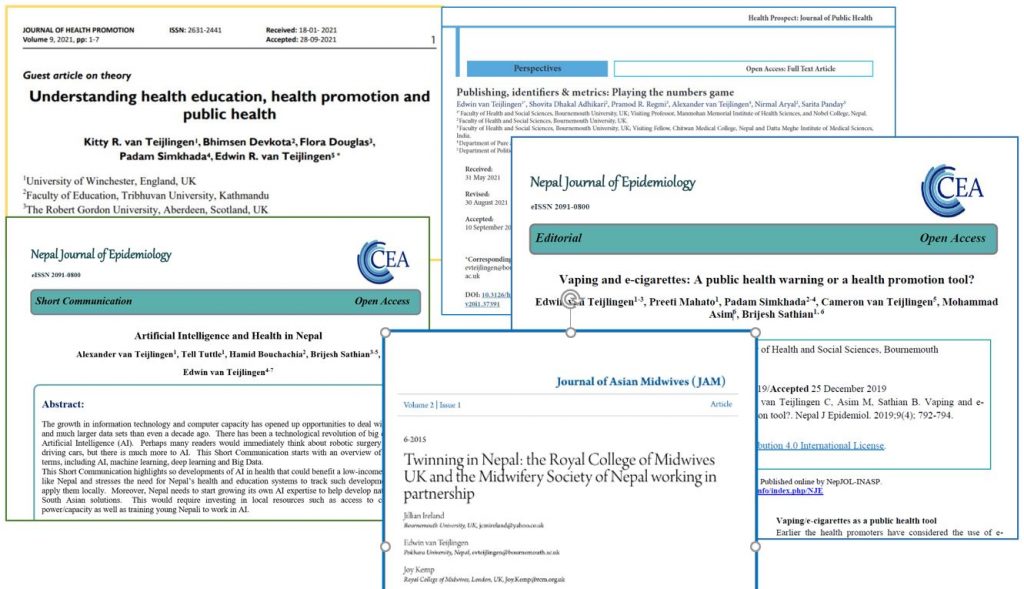

 The
The 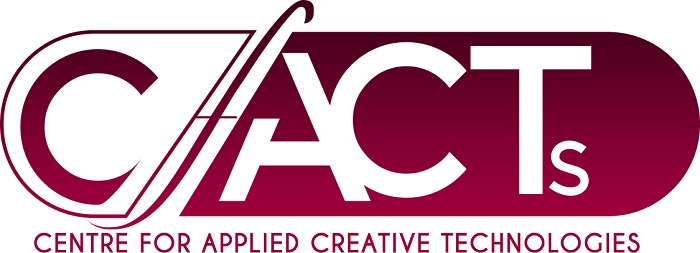
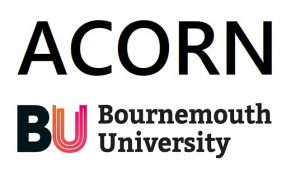 this is a reminder that ACORN Round 4 is closing on 10 December 2021 at 5pm.
this is a reminder that ACORN Round 4 is closing on 10 December 2021 at 5pm.
 Postgraduate researchers and supervisors, hopefully you have seen your monthly update for researcher development e-newsletter sent earlier last week. If you have missed it, please check your junk email or you can
Postgraduate researchers and supervisors, hopefully you have seen your monthly update for researcher development e-newsletter sent earlier last week. If you have missed it, please check your junk email or you can 
 At Bournemouth University we collaborate with global institutions and organisations through our education, research and practice.
At Bournemouth University we collaborate with global institutions and organisations through our education, research and practice.

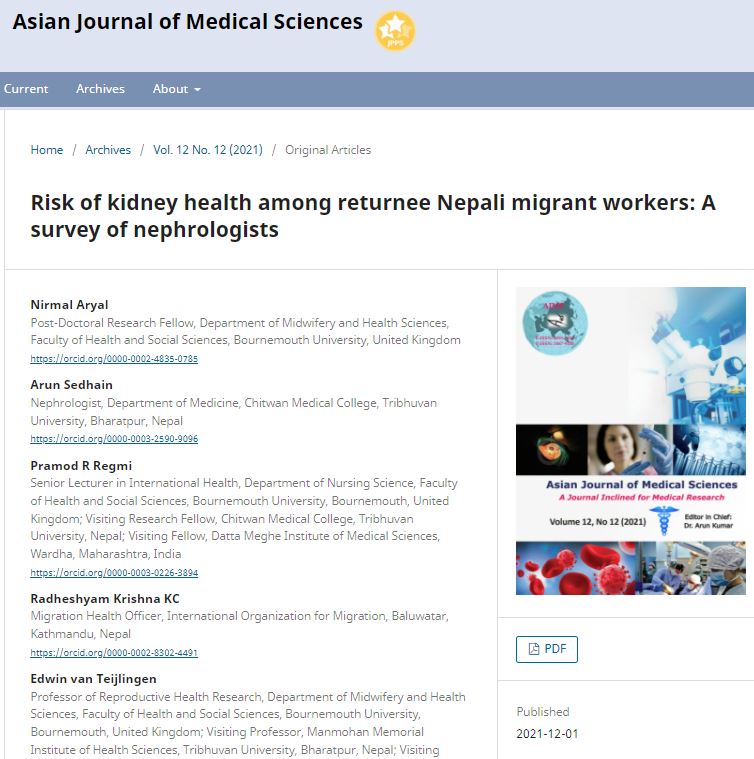

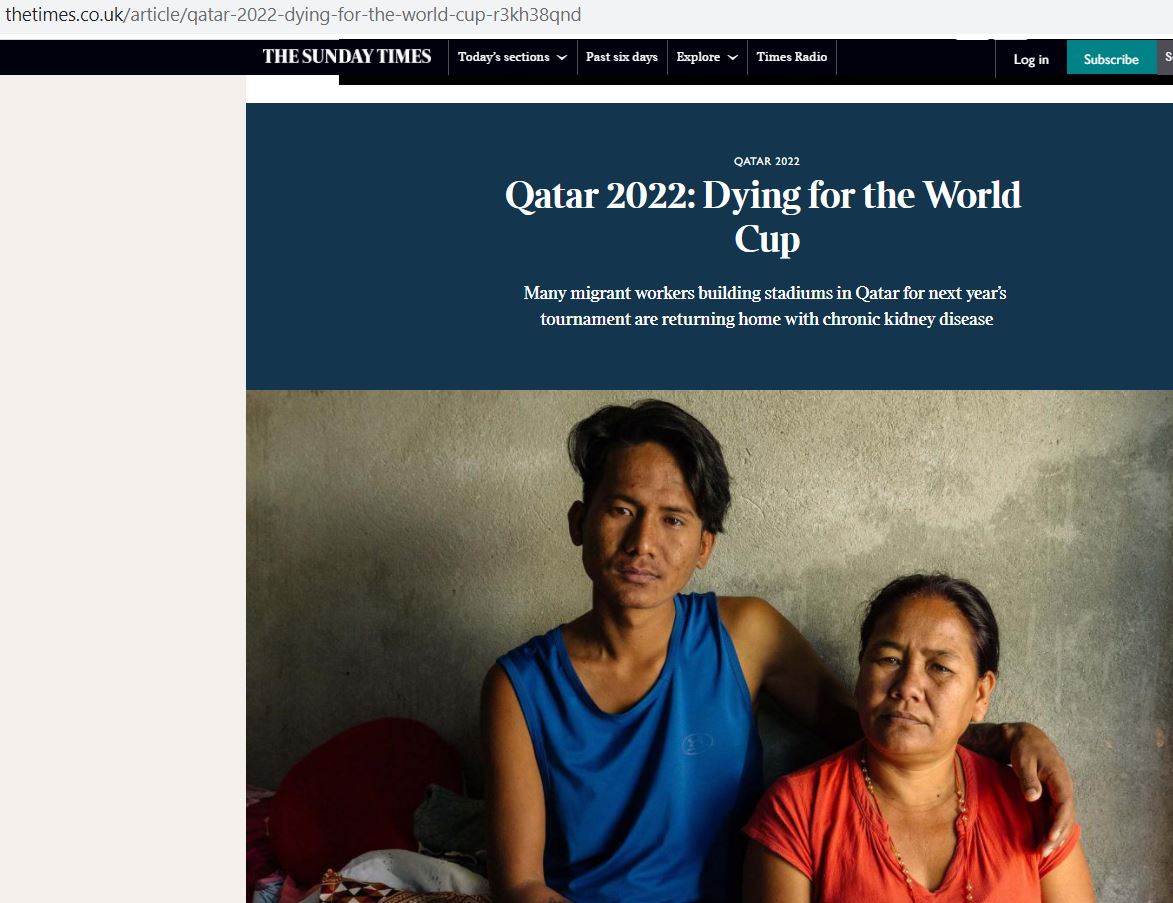
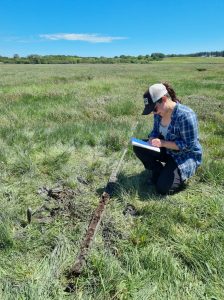
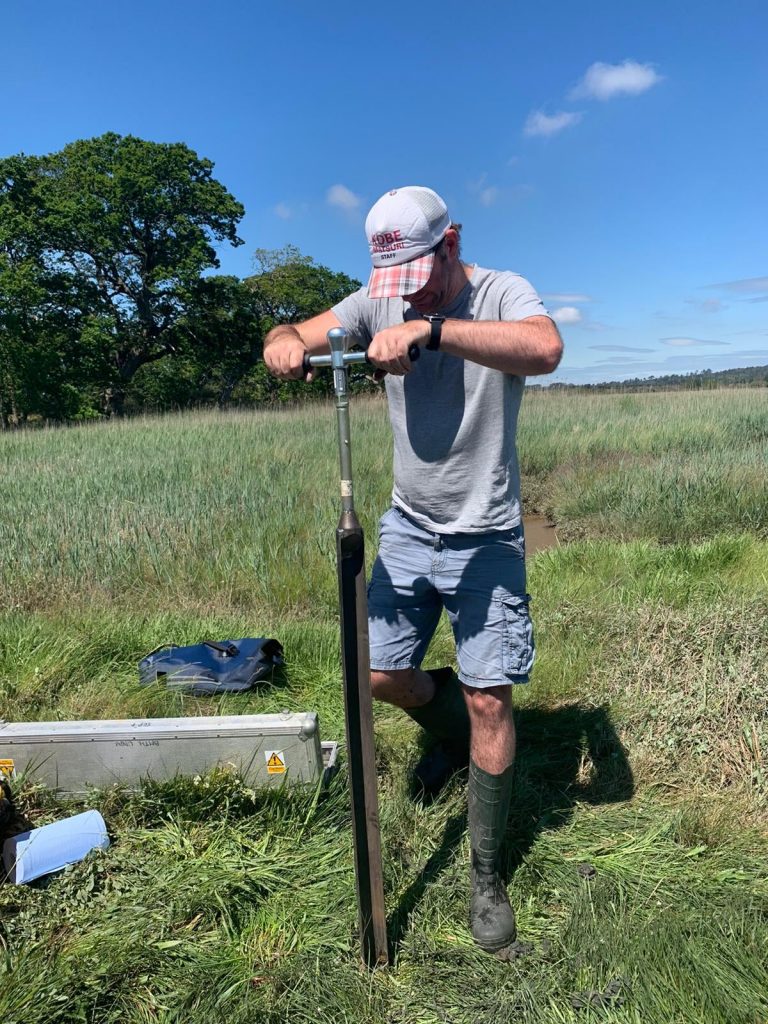
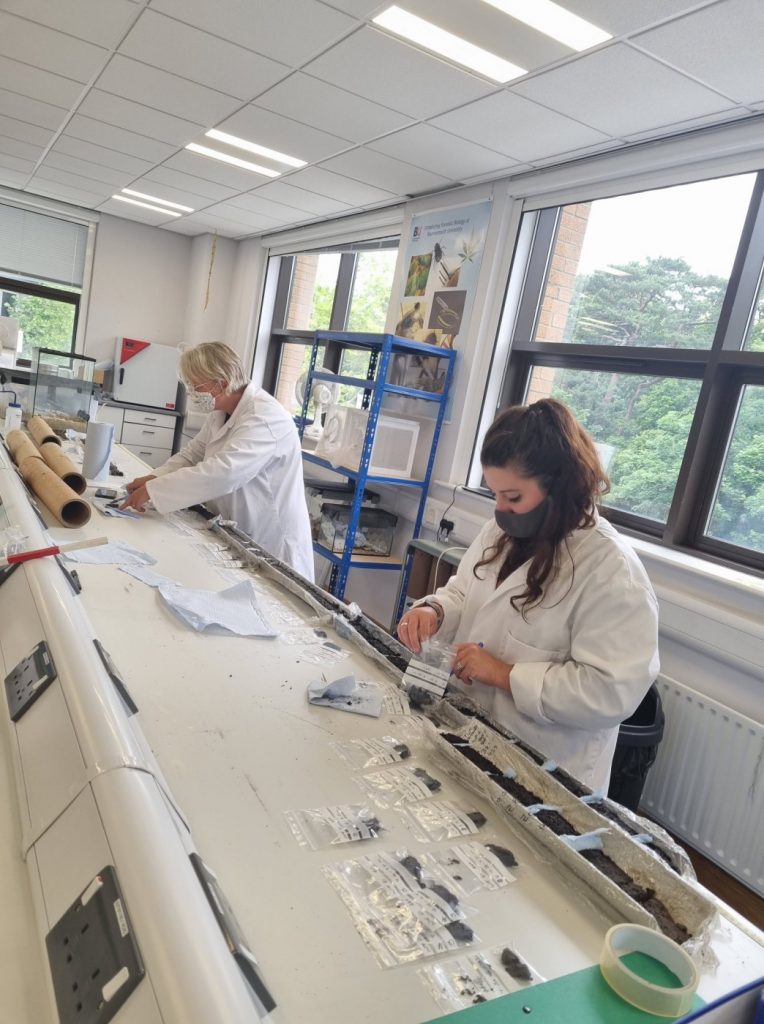
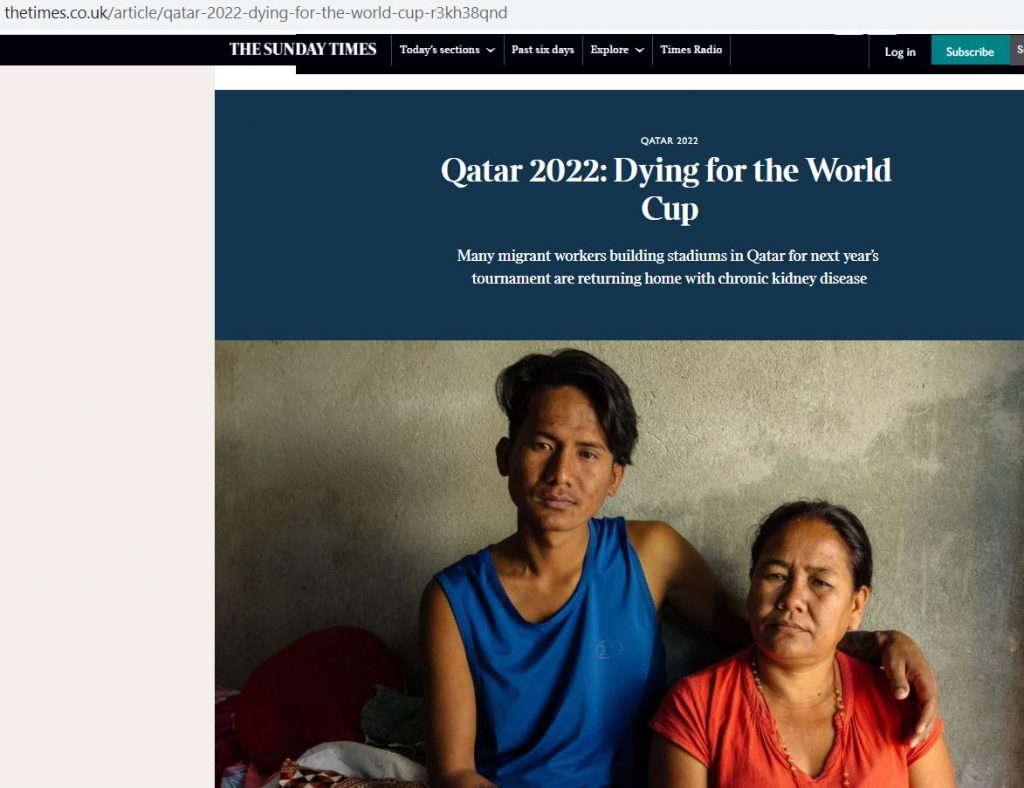











 ESRC Festival of Social Science 2024 Open Call – Deadline for Applications Thursday 16 May
ESRC Festival of Social Science 2024 Open Call – Deadline for Applications Thursday 16 May We can help promote your public engagement event or activity
We can help promote your public engagement event or activity New Seed Fund for Public Engagement with Research: Last Six Funding Opportunities Available
New Seed Fund for Public Engagement with Research: Last Six Funding Opportunities Available Congratulation on new interdisciplinary publication
Congratulation on new interdisciplinary publication BU professor speaking at Aberdeen Centre for Women’s Health Research (ACWHR)
BU professor speaking at Aberdeen Centre for Women’s Health Research (ACWHR) New seed fund for public engagement with research: open for applications
New seed fund for public engagement with research: open for applications Horizon Europe News – December 2023
Horizon Europe News – December 2023